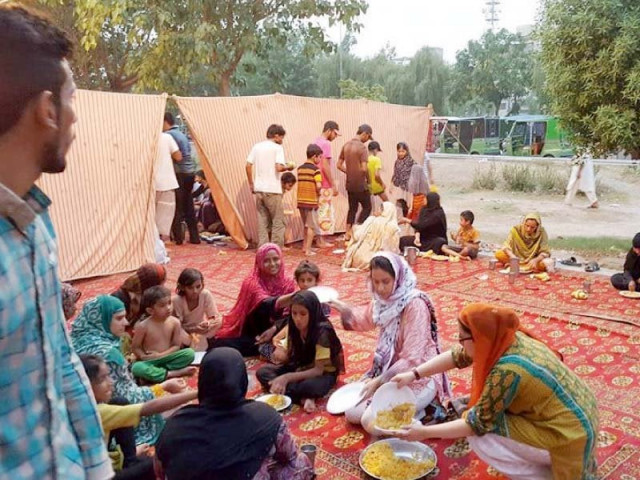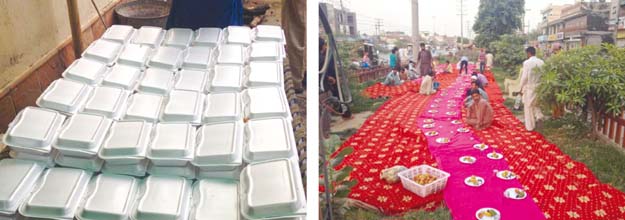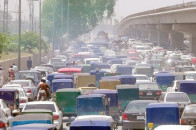Young professionals bring ‘Iftari on the Road’
The tradition of providing free iftari is becoming more popular in country

PHOTO COURTESY: IFTARI ON THE ROAD
These youngsters are professionals working at different companies in the city. A few years ago, this observant lot had an epiphany when it saw food going down the tubes, literally.
Valeed Khan, who is the brainchild of ‘Iftari on the Road’, shares how he formed a group to make arrangements for people to break their fast. Some four years ago, when he and his friends were students, they decided to have Iftari at a local hotel and paid a pretty penny for their meal. “We could not consume all the food and most of it was chucked into the garbage bin,” he recalls.

“It is unbelievable that most of the food at these eateries ends up in the garbage instead of the human body, “he says. “This tonnes of food can feed millions of people.”
“On seeing our food going into the trash, we decided to organise Iftari from our own pocket money and share it with underprivileged people.”
During Ramazan: Arrangements finalised for cleanliness
Rafia Islahi, another volunteer of ‘Iftari on the Road’, tells The Express Tribune that since the group manages to organise buffets through their own money and with the help of their friends, publicity is the last thing on their mind.
“Honestly, it is much better to break our fast on the road with people we don’t even know rather spend a lot of money at some hotel,” she said.
Providing free Iftari is becoming ever more popular in the city as a number of individuals and organisations are coming forward to provide free food for labourers, the homeless and the needy. Such Iftar Dastarkhwans are set up on the roadside and in markets on a regular basis with the help of philanthropists.
Punjab University Dean of Social Sciences Professor Zakeria Zakir, while appreciating the efforts of these young people, said it was the government’s responsibility to provide free food to impoverished or marginalised communities. “In our country, there is no food scarcity. Why are people not getting food and shelter? It shows an administrative failure as they have the resources to provide food security to people.”
He said a lot of people in upscale localities provide Iftari and dinner to thousands of people outside their homes, but that is more a show of wealth. Actually, through such acts, we are creating an army of beggars. I repeat, it is not a sophisticated way of philanthropy,” he said.
The professor stressed that billions of rupees were being spent on food, but there was a need to chalk out a proper welfare system which could fulfil the basic needs of the people.
Published in The Express Tribune, June 7th, 2017.



















COMMENTS
Comments are moderated and generally will be posted if they are on-topic and not abusive.
For more information, please see our Comments FAQ